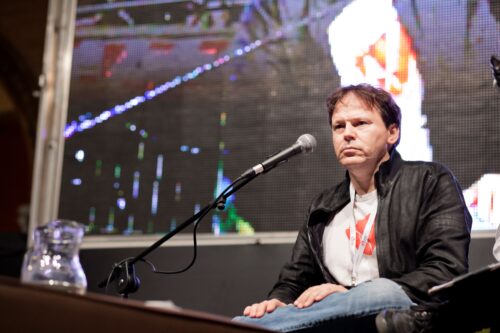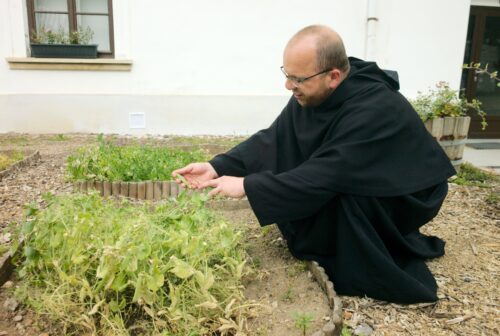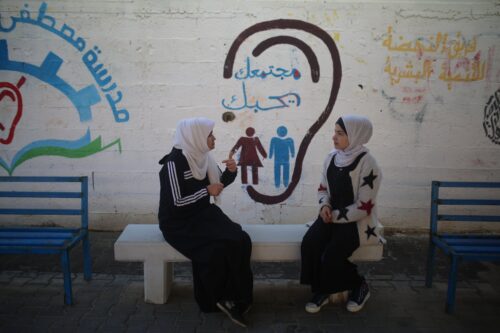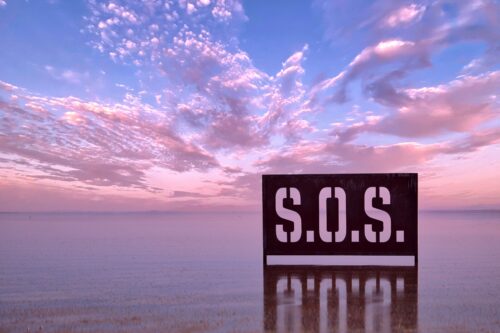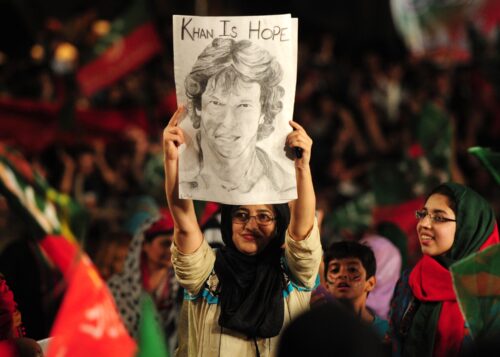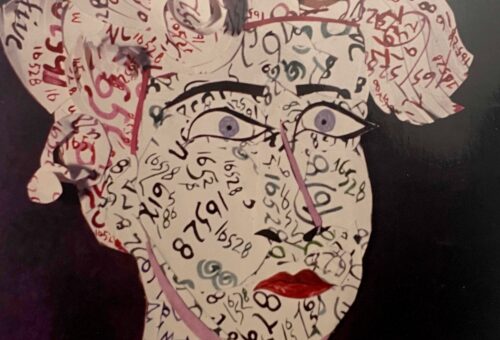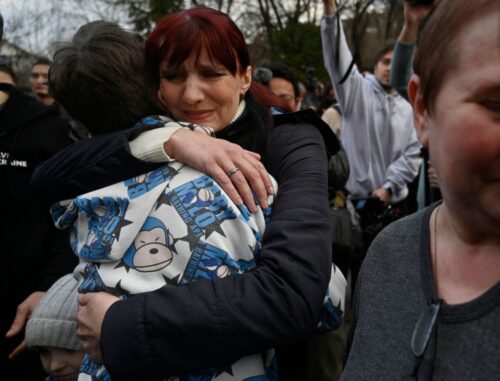Europe’s Destructive Spirals of Distrust
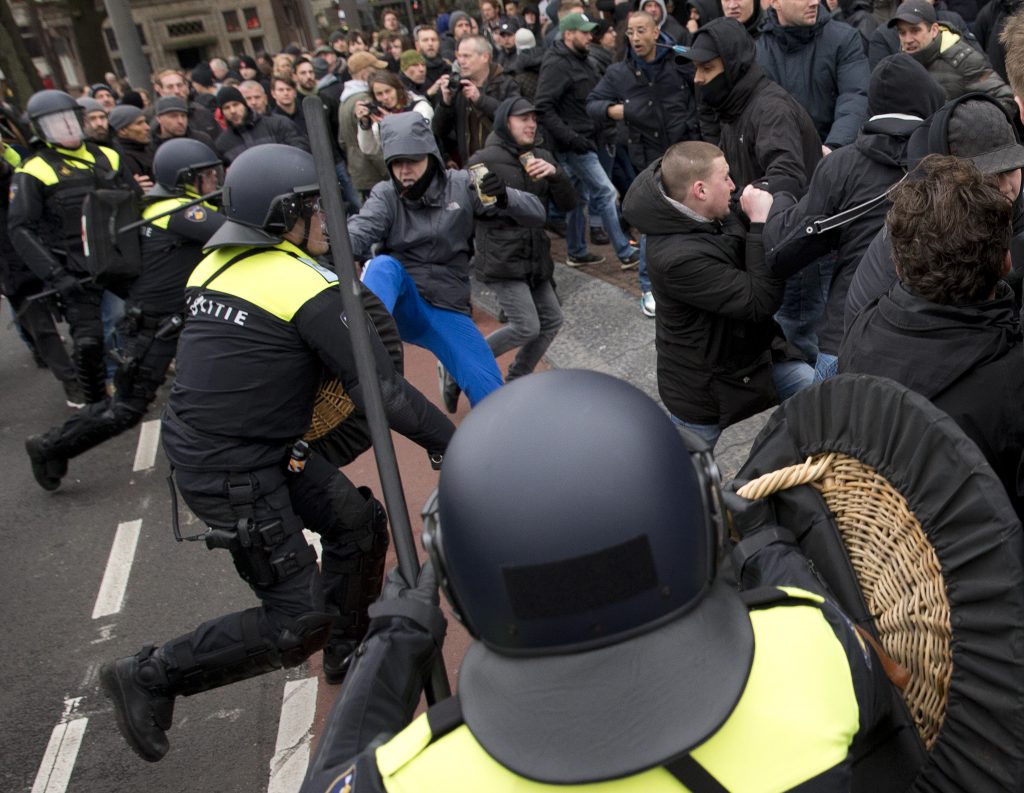
Controversies around minority rights, terrorist threats, seemingly never-ending refugee crises, and the challenges of cultural diversity are endemic features of European societies in the early 21st century. Tensions have been on the rise recently. On top of other uncertainties and insecurities—from growing unemployment and labor precarity to environmental issues and weakening European cooperation—the current Syrian refugee crisis and the recent terrorist attacks have made the situation more tense than it has been for a very long time. These events have been met by a variety of responses, the most vocal and visible of which are potentially disruptive and destructive; they risk fanning the fire rather than quelling it. An article published 82 years ago may shed valuable light on this problem, and may even point toward its mitigation.
From France to Sweden, there is widespread anxiety among the ethnic majority about the assumed growth of Islamist ideologies within the Muslim immigrant community. A perceptible increase in religious fervor of some Muslims in Europe—coupled with stories about young men and women traveling to Syria in support of the horrific Islamic State (IS) group—has led to a strengthening of nativist ideologies. These ideologies that heavily favor native-born people over immigrants portray Muslim immigrants as a threat to security, decency, and national identity. Nativists often sing the praises of cultural homogeneity as an alternative to the “mess” created by multiculturalism.
Many Muslims feel unfairly targeted for transgressions committed by a handful of criminals, like the Paris and Brussels terrorists. Sensing increasing hostility in mainstream society, some relinquish their earlier ambitions of integration and withdraw into ethnic and religious communities. These enclaves are sometimes fueled by ideologies that reject majority society and offer an alternative to modern and cosmopolitan culture (which is seen as a Western conceit).
From an outside perspective, it is easy to see that the two families of responses to the heightened sense of insecurity mutually constitute one another and depend on each other for strength. Both represent a politics of identity—based on group membership or religious affiliation—rather than a politics based on traditional ideas such as socialism, conservatism, liberalism, or humanism. Both glorify a world defined by purity and boundaries rather than one characterized by flow, mixing, and frictions—an island without borders or bridges.
Indeed, the growing impact of identity politics in European societies creates a double polarization. The first is the symbolic competition between Islamists and nativists, the second the conflict between identity politics and secular politics. In Sweden, which has been among the most accommodating countries in the ongoing refugee crisis, asylum centers have been burned down. A recent opinion poll indicates that an unprecedented 29 percent of the Swedish population presently supports the right-wing Sweden Democrats. France, which has a secularist political identity (all citizens are in principle equal, regardless of their culture or religion), has seen an upsurge of identity politics among both nativists (mainly represented in Front National) and Muslim extremists. More than a third of the European IS fighters in Syria come from France.
There is, however, a third way to respond to the polarization of identity politics. Leading European intellectuals and many politicians insist on basing political projects on principles other than religion or group membership. To them, Islamism and nativism are two sides of the same coin. This perspective may at the very least shed interesting light on the issue, and it was outlined in 1935 in Gregory Bateson’s seminal article “Culture Contact and Schismogenesis.”
In this article, Bateson identifies a universal mechanism of escalating conflicts that he calls schismogenesis. Schismogenetic processes are vicious circles whereby groups reinforce their destructive behavior rather than looking for compromises: The more you threaten me, the more I shall threaten you. As extreme, intolerant Islamist preachers spread their poison, nativists and Islamophobes respond in kind by denouncing any form of Islam as antidemocratic and inimical to European societies.
Bateson distinguishes between complementary and symmetrical schismogenesis. The former refers to different but interconnected actions—like dominance versus submissiveness—which may similarly lead to destructive spirals and ultimately end in what Bateson calls a system breakdown. The latter refers to identical actions that are mutually reinforcing, such as arms races. In Bateson’s words, symmetrical schismogenesis entails that
if, for example, the patterns X, Y, Z include boasting, we shall see that there is a likelihood, if boasting is the reply to boasting, that each group will drive the other into excessive emphasis of the pattern, a process which if not restrained can only lead to more and more extreme rivalry and ultimately to hostility and the breakdown of the whole system.
Unless a third, mediating instance enters into this dance of mutual suspicion and alienation, by offering an alternative approach, the result can be catastrophic.
The growth of mutual suspicion based on religion and nationality is deeply worrisome. Finding ways of living together in this overheated, interconnected world is a civilized and civilizing act. The model I have sketched can help expose the escalating spirals and point to alternative paths. A very real danger facing European societies today is that divisive identity politics, from Islamists and nativists, may succeed in taking the public hostage to their interlocking worldviews of suspicion and social exclusion. Understanding these vicious circles can be a step toward the realization that there is no need to build bridges or cross borders because we all live on the same island.



